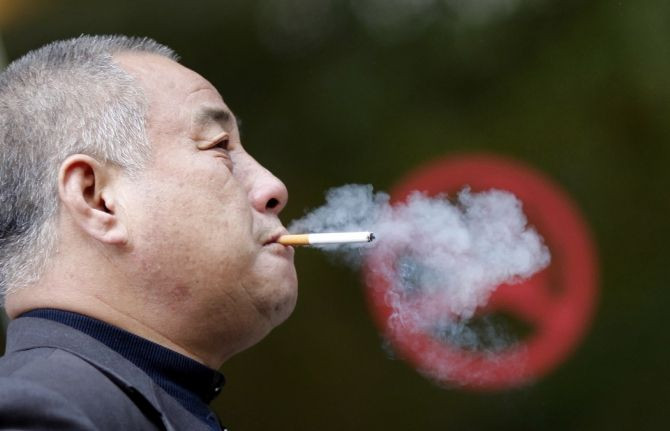176 Countries Adopt Global Deal to Fight Illegal Tobacco Trade

Health officials from 176 countries on Monday agreed to a deal to combat the illegal tobacco trade at the World Health Organization (WHO)'s Framework Convention on Tobacco Control in the South Korean capital Seoul.
The treaty aims to create an international tracking system to fight the smuggling and counterfeiting of tobacco products, a trade that makes up for 11 percent of the total tobacco market, robbing governments of more than $40 billion in tax revenue each year and undermining efforts to reduce smoking.
The new measures require member governments to license manufacturers and for tobacco packaging to be marked with non-removable tracking and tracing mechanisms. Tobacco companies will also have to carry out checks on customers to make sure that products are genuine or if they are associated with criminal associations.
WHO director Margaret Chan called the Monday agreement, which follows more than five years of negotiations, a "game-changing" global pact.
"This is a game-changing treaty," Chan said in an address to a meeting in Seoul. "This is how we hem in the enemy," she said, calling the protocol a major step towards "eliminating a very sophisticated criminal activity," according to AFP.
"Illicit trade is bad for health because it circumvents measures like taxes and price increases that are known to reduce demand," Chan said, according to a UN news release.
"The tobacco industry behaves like a corrosive substance that can eat through, or seep through, any crack or fissure in the amour of our defenses," Chan added. "Our response must be to seal all these cracks and fissures, one by one, with science and evidence, supported by instruments for applying this knowledge and backed by the rule of law."
Experts estimate that 600 billion or 10 percent of all cigarettes are smuggled each year by organized gangs.
Researchers at an independent non-profit Tax and Investment Center based in Washington found that approximately 11 percent of the world cigarette market is illegal, and that the illegal cigarette market results in an annual loss of more than $40 billion in government revenue.
Furthermore, investigators said that there is evidence that profits made from illegal tobacco trade fund criminal organizations, according to Reuters.
The Framework Convention Alliance, a coalition of more than 300 non-government organizations advocating for tobacco control, said that it was "excited" by the new treaty.
"The illicit trade in tobacco feeds the worldwide tobacco epidemic by flooding markets with cheap products and keeping tobacco taxes low," FCA director Laurence Huber said, according to AFP.
However, the United States and other countries where major tobacco companies are based will not be subject to the new anti-smuggling agreement because they have not sanctioned the original pact.
According to Reuters tobacco giants like Philip Morris International and British American Tobacco have said in the past that they would support a pact with effective measures against illegal trade.



























